I've closed my cafe after 5 years. Here's why I don't regret a single moment
This August, Ms Daphne Ling closed the doors to her beloved cafe of five years. She reflects on the highs and lows of running an F&B business in an increasingly difficult climate.
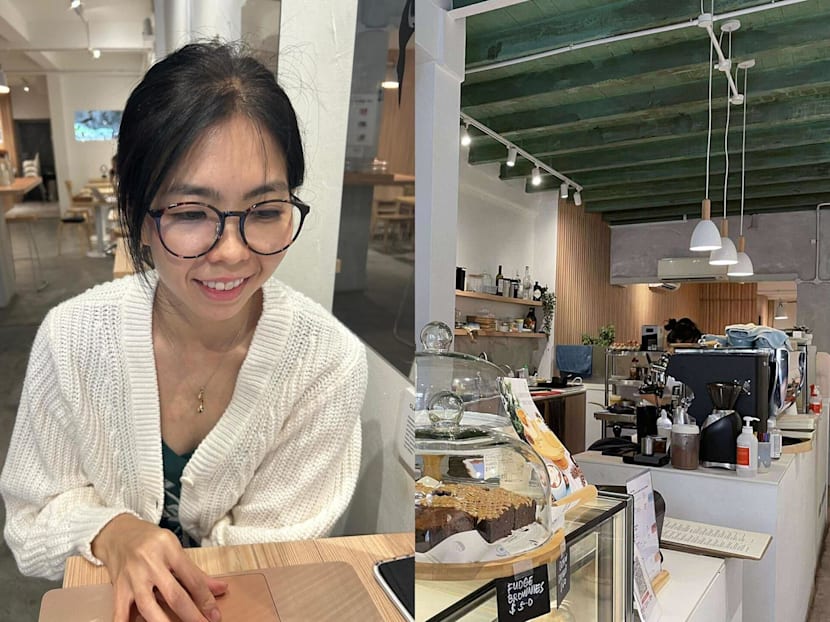
For five years, Ms Daphne Ling ran a cafe. She calls it an "exhausting, demanding job" – one that she will miss very much. (Photos: Daphne Ling)

This audio is generated by an AI tool.
For the past five years, my husband and I have been operating Main Street Commissary, a cafe along Rowell Road. A few weeks ago, we closed the doors to our little shop for the last time.
The success rate for brick-and-mortar food-and-beverage (F&B) businesses is notoriously low.
It’s a brutally demanding industry with long hours, thin margins, high competition and volatile rental rates. Closures are frequent – more than 3,000 F&B businesses shut down in 2024 alone, reported the Accounting and Corporate Regulatory Authority.
In this climate, our cafe's story is a familiar one.
We were facing a second rent hike in five years, making our rental costs almost double what they were when we first opened our doors. Add to that the manpower challenges and the rising cost of goods, and our prospects of ever turning a profit just seemed too bleak.
And yet each year, more new F&B establishments open their doors – leading to a net gain in the number of such businesses in Singapore last year. Against such odds, why do we keep trying?
AN UNEXPECTED DREAM
My husband and I have been running an advertising agency for 12 years now.
In 2019, the ground floor unit below our agency's shophouse office became available for rent. The antique shop that previously rented the premises had shut down, leaving the space empty for several months.
One morning, my husband joked: "We should take over the rental and start a cafe so we can have proper coffee every morning."
We were already laughing at the impracticality of such a venture, but still I sobered up enough to reply: "Do you know how many cafes close down each year? Too many."
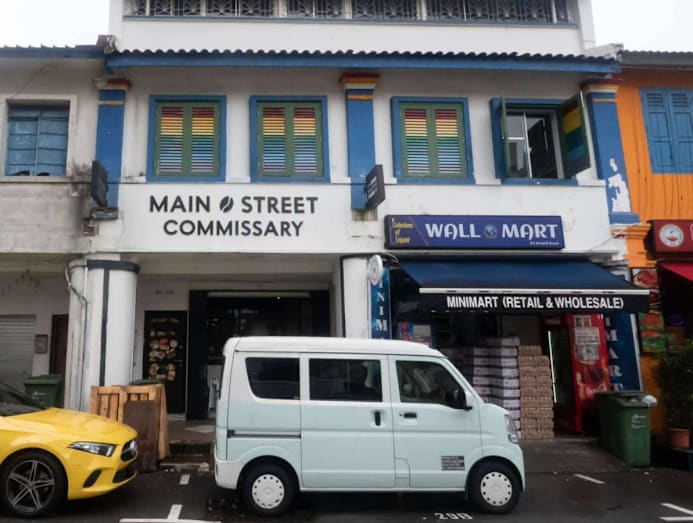
But every morning, as we walked past the shuttered gates on our way to work, we began dreaming about the possibility of a curatorial art cafe that would bring people together – people like us, lovers of coffee and food and art.
Despite our reservations, we started researching what it would take to do this. We consulted with friends who were already in the industry, talked to interior designers, planned menus and worked on a business plan.
After running the projections, we decided to go for it.
Reactions from friends and family varied, to say the least. There were the enthusiastic ones ("That’s so cool! It’s a dream to start a cafe!"), and the cautiously supportive ones ("Sounds exciting but this is a really tough industry").
And then there were the outright incredulous: "You spent four years getting a communications degree to end up making coffee?"
THE HARD WORK OF LIVING THE DREAM
For most of us, the dream is to have a job that makes us happy to wake up every morning. As the saying goes: "Choose a job you love, and you'll never have to work a day in your life."
Even though it didn't last, I count myself lucky to have spent the past five years doing just that.
For five years, we served all our favourite food and sourced for coffee from small-batch growers in places like Guatemala and Nicaragua. We worked with all kinds of local artists to feature their work on our walls – poetry, photography, tattoo designs, even less conventional things such as taxidermy and keycaps (stylistic covers for keys on computer keyboards).
We turned a blank canvas of a rental unit into something uniquely ours. A space that always smelled of fresh coffee and buttery pastries; a space where someone could sit alone and not feel lonely. A space that felt like a warm hug on a rainy afternoon.
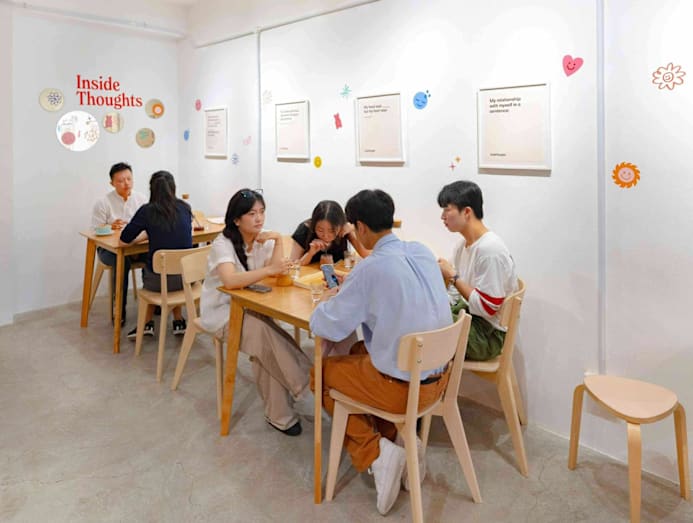
It was indeed a dream, but all dreams require hard work.
For those five years, I often spent weekends working in the cafe on top of continuing with our agency work. I learnt to prepare food and pour latte art, bussed and wiped tables, rolled up my sleeves and washed dishes.
Once, when we were short on manpower, I ended up working for 28 days straight – no days off, no breaks.
It was backbreaking and exhausting, and I enjoyed every minute of it.
THE LESSONS WE LEARNT ALONG THE WAY
In an increasingly digitalised world, food truly is a business unlike any other – not just because it's laborious and high-risk, but because it is powerfully connective.
Take coffee for example. We pulled each shot of espresso with mindful precision, aware that each extra second of extraction affects the balance of sweetness and brightness. Our latte art was more than just aesthetic; it was our way of showing the great care we'd poured into every aspect of a simple cup of coffee.
It made me smile whenever a customer told me our coffee was delicious because I knew the level of thought and intention that went into each and every cup we served.
And no other job is quite as rewarding. The enjoyment of food is entirely experiential and it has the ability to instantly make someone’s day better. We often had customers taking the time to say thanks for a lovely meal.
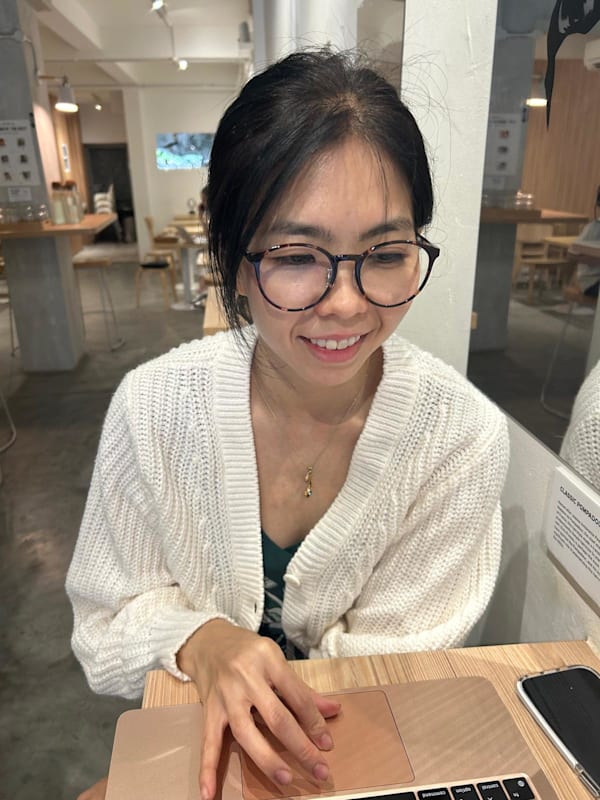
Once, we had a family of tourists from Finland come in for breakfast five days in a row.
By day four, I offered to recommend some other brunch places – after all, Singapore is such a food haven that it seemed like a bit of a pity for them to miss out on other options.
No, thank you, they said cheerfully. We made the best French toast they'd ever had, they explained, and every morning, they woke up craving a fresh plate of it.
From behind the coffee counter, I got the chance to connect with so many strangers I would never otherwise have had a chance to meet.
Singaporeans have a reputation for being reserved, but in five years of running our cafe, I got to see a different side of so many of my own countrymen – one that was friendly and forthcoming, generous with conversation. And it was all thanks to the magic of hospitality.
As they waited for their takeaway coffee, many customers talked to me about the latest episode of the television show Single's Inferno, or a new book they were reading, or an exciting trip they'd just returned from.
Last year, we had a collaborative showcase with Sincerely, Singles – an initiative by digital publisher Our Grandfather Story – with the theme of moving on from past relationships.
Customers shared intimate break-up texts and I had surprisingly personal conversations with them about love and heartbreak and the hope of moving on.
Some of them even became personal friends and I'm grateful because it's in these connections that we find meaning and joy.
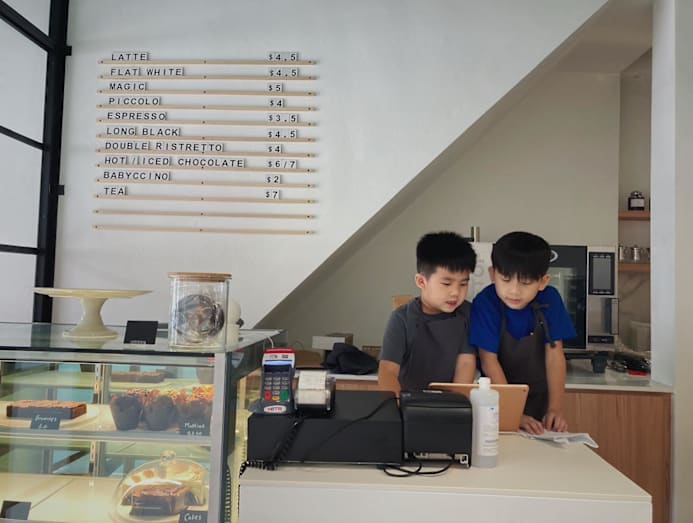
NO REGRETS
The last few weeks have been bittersweet, full of farewell announcements and preparations to wind the business down.
It's hard to walk away from this thing we've built. It's hard to know why some businesses succeed while others don't.
But while we take comfort in knowing that while it lasted, we created something that we're proud of.
Truthfully, we knew right from the outset that our cafe was a long shot.
Nonetheless, there’s an optimism that fuels every business owner. No one embarks on a project thinking that it’s going to fail.
We're well aware of the risks – but sometimes the possibility of turning a dream into reality is what makes the risk worth taking.
Would we ever give F&B another shot? At this point, it doesn’t seem likely – with such high levels of risk, unless there are substantial changes to tackle issues like rent hikes and manpower challenges, failure will remain much more likely than success.
And so it's goodbye for me – goodbye to this exhausting, demanding job that I'll miss so much, and a hectic, heartwarming experience I'll never forget.
Daphne Ling is the co-owner of an advertising agency. She is also a mum of five.
If you have an experience to share or know someone who wishes to contribute to this series, write to voices [at] mediacorp.com.sg (voices[at]mediacorp[dot]com[dot]sg) with your full name, address and phone number.










